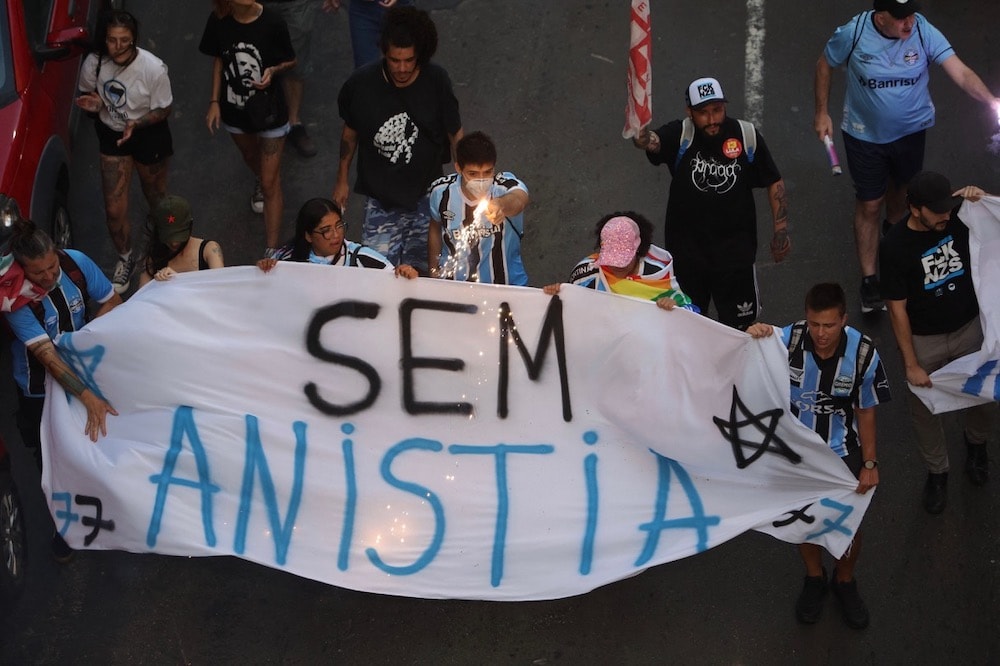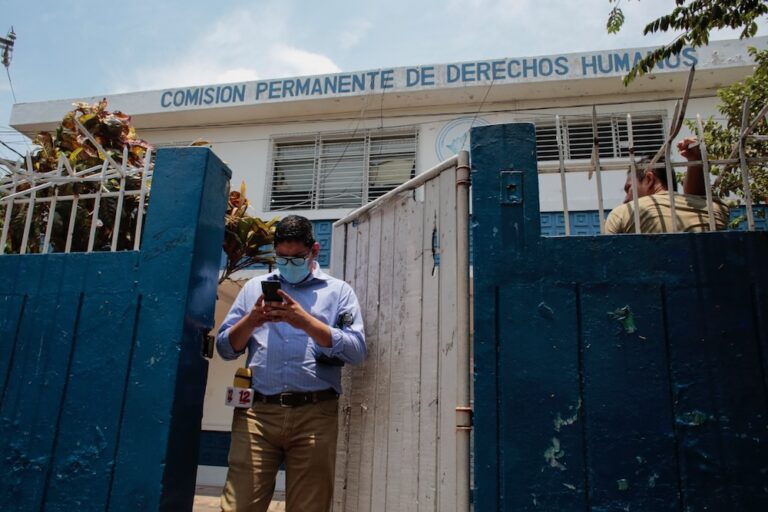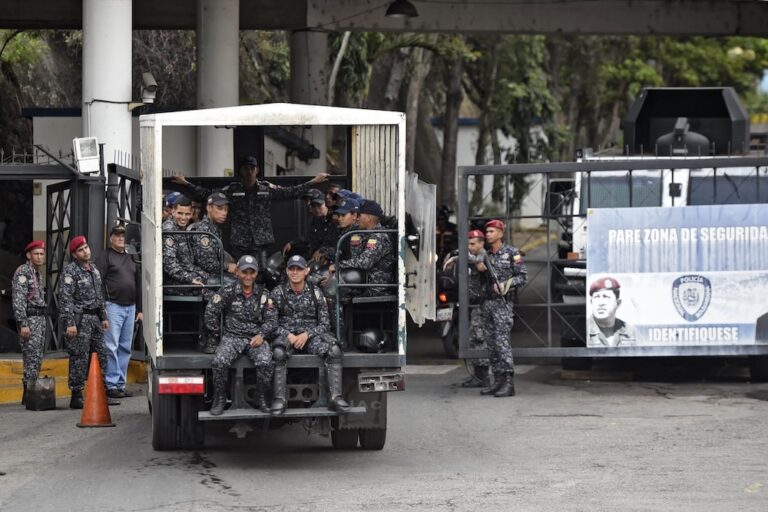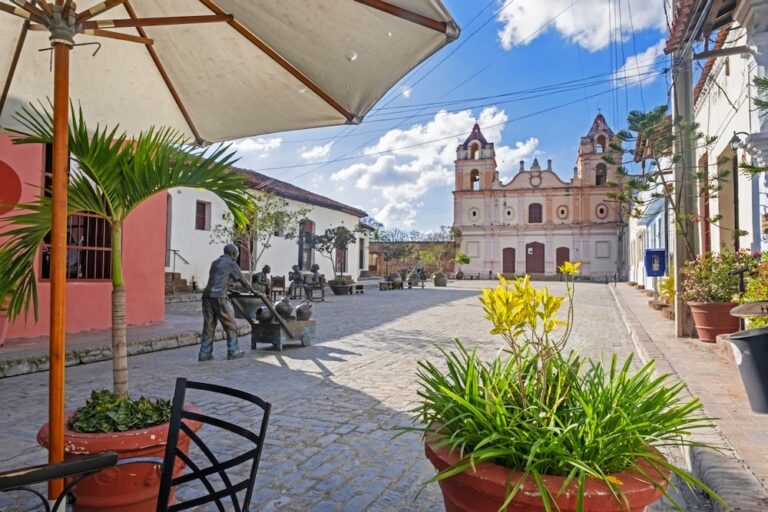January 2023 in the Americas: A free expression round up produced by IFEX's Regional Editor Laura Vidal, based on IFEX member reports and news from the region.
Riots in Brazil translate into further threats to its fragile democracy and violence against the press. Peru’s ongoing political deadlock and violent crackdown on protests endangers journalists covering the events and exacerbates the repression of critical voices. Venezuela’s NGOs, radio stations and newspapers are once again targeted by the government.
Brazil: A chronicle of an uprising foretold
On 8 January, Brazil was left in shock when violent groups supporting ex-president Jair Bolsonaro stormed key public buildings in the capital, Brasilia, in what appeared to be a coup attempt. The images spread widely, sparking immediate comparisons to the 6 January 2021 storming of the Capitol in the United States. The actions were described as something many saw coming except, seemingly, social media platforms, which failed to properly moderate content that spread disinformation and encouraged the attacks. The event was a potent reminder of how extremists’ groups organise and learn from one another, as well as how the effects of disinformation – in this case planted by pro-Bolsonaro groups, sometimes even coming from those in public office – can fuel dangerous threats to democracies.
Journalists were also the target of those participating in the 8 January attacks; the roots of this kind of violence include disinformation, and can be traced to previous years. Stigmatisation and violence (against women journalists, in particular) are often experienced in response to their work, particularly from government officials. According to a statement published on 13 January by IFEX member the Brazilian Association for Investigative Journalism (Abraji) and the Federal District Journalists’ Union (SJPDF), at least 16 journalists were attacked or harassed in Brasilia during the riots, and at least 24 others were targeted in the aftermath.
The authorities have been swiftly making arrests. More than 1,200 people are expected to be charged for their participation in the attacks. High-level officials in Luiz Inácio Lula da Silva’s government are investigating political and business elites suspected of organising, financing, or in other ways supporting the rioters. Questions as to the actions of law enforcement have been raised, as military police initially stood by as protesters were marching towards state buildings.
Days after the riots, pro-democracy supporters gathered at the University of São Paulo’s law college, where they demanded justice under the chant “No Amnesty!” – referring to the Amnesty law passed at the end of the Brazilian dictatorship, in 1979. It was intended to promote unity, but ended up being an instrument of impunity for too many.
Peru: A long political crisis, and still no end in sight
Pedro Castillo’s attempted coup d’etat against his own government ignited a crisis, fuelled by the frustration of enduring political and institutional deadlocks. After the attempt to shutter Congress on 7 December, Castillo was removed from office and put in detention. Protests shook the country, especially in the southern Andean regions, which had supported Castillo’s presidential candidacy. In recent days, the unrest moved to the capital, Lima, and has been led mainly by rural Indigenous communities that supported Castillo’s plan to fight poverty, racism and inequality.
After Castillo’s detention, Vice President Dina Bolouarte took office, but protesters are demanding she step down, not only in support of Castillo, but also because of the violent crackdowns that have taken place against protesters. At least 57 people have died. There have been violent interventions and arrests, the most alarming at the Universidad Nacional Mayor de San Marcos in Lima. These and other events have prompted general condemnation. The CIDH has also called attention to the extreme responses of law enforcement institutions, and formally visited the country in mid-January.
Prior to the current crisis, Castillo’s time in office had been complicated by impeachment attempts and corruption allegations. His relationship with the press was also troubled. IFEX member The Press and Society Institute (IPYS) repeatedly warned against Castillo’s stigmatising discourse and attempts to keep the press at bay.
Both IPYS and the Peruvian National Association of Journalists (ANP) have denounced the excessive use of force by police and the military against protesters, and have called for media outlets to strengthen their efforts to protect their staff.
Journalists and media workers have been targets throughout the protests, with at least 72 attacked by police or protesters in the course of doing their work. Some of these cases have been documented by the Committee to Protect Journalists (CPJ):
“On January 19, demonstrators in Lima insulted, spit on, and punched reporter Lourdes Paucar and camera operator Willy Nieva […] protesters also attacked other members of their reporting team, throwing bottles, rocks, and bricks […] ‘There is a lot of hatred aimed at the press. The protesters don’t trust us. They say we spread false news’.”
At the same time, ANP called for a recognition of the legitimate right to protest, and expressed concern over the discourse surrounding the coverage of the protests by some media outlets, which have been using terms such as ‘terrorists’ and ‘vandals’.
Venezuela: Attacks against media coming from many fronts
The systematic closing of Venezuelan radio stations continues into 2023. The latest case concerns Kalidad 90.3 FM, shuttered after 24 years on the air. The National Commission of Telecommunications (CONATEL) gave the order following the expiration of the station’s permit, which had not been renewed. IFEX member Espacio Público have noted that permit expiration, usually due to the many bureaucratic hurdles imposed by the Commission, is often used to justify the closures.
January also saw a new attack against the embattled El Nacional. The newspaper, founded 80 years ago in Caracas, used to be one of the most influential in the country. Today it is a web-only outlet, after being hit by newsprint shortages, government fines, defamation lawsuits, and the seizure of its building. On 25 January, officers of Venezuela’s investigative police unit detained news editor José Gregorio Meza, as well as human resources manager Virginia Nuñez, and questioned them about a recent article. The article suggested a possible connection between President Nicolás Maduro’s son, Nicolás Maduro Guerra (also involved in politics), and two Venezuelans sanctioned in 2020 by the U.S. Treasury Department for their alleged involvement in illegal gold mining.
The police unit also delivered subpoenas to other employees and journalists of the newspaper – even though some of them had nothing to do with the news or with the articles in question – and threatened the families of those who now live abroad.
This new activity against the media is taking place against the backdrop of discussions about yet another bill aimed at regulating NGOs. The bill has 17 articles, some of them designed to obtain more information about and control over NGOs’ finances and activities, and which would give the government the authority to shut down those that do not follow the new norms. Eight international human rights organisations, among them Human Rights Watch (HRW), signed a joint statement calling this bill a new attack against CSOs and their critical work documenting human rights abuses.
In brief
Journalism is not a crime: On 11 January a criminal court judge in Chile convicted Felipe Soto Cortés, editor of the independent news website Resumen, of defamation. The charges are related to an article that alleged a public official was earning excessive pay through parallel contracts while working for the state. The Inter American Press Association (IAPA) described the conviction as a “threat for democracy”. Soto will appeal.
Stop the stigmatizing: ARTICLE 19 Mexico and Central America published a statement following President López Obrador’s stigmatising response to Moisés Sánchez’s son, Jorge Sánchez, when questioned about the lack of justice regarding the assassination of his father in Veracruz, Mexico, in 2015. Sánchez’s concerns are shared by the families and loved ones of the numerous journalists who have been killed in the region in the exercise of their work.
Justice and reparations: The Inter-American Court of Human Rights delivered its decision in the case of Santiago Leguizamón, who was gunned down in the border region of Pedro Juan Caballero, Paraguay, in 1991. Civil society organisations as well as other groups dedicated to the security of journalists are closely following the implementation of the reparations called for in the Court’s decision. These reparations include the creation of a truth committee to investigate the case, and also the creation and passing of legislation devoted to the protection of journalists, particularly those working at the border.



